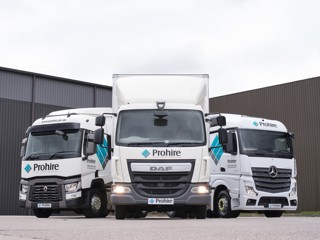Avis has been wrestling a number of challenges that are largely unique to the UK corporate rental market – all of which affect its bottom line.
Vehicle collection and delivery is an expectation for many customers, while the list of requirements in the service level agreements (SLAs) tends to be extensive which, according to Ceille, is at least partially to blame for the poor image suffered by the rental sector.
“We are working with leasing companies because the SLAs are extremely onerous,” Ceille says.
“For example, the requirement to deliver a car within two hours no matter where it has to be delivered – and if you fail, you are hit with a fee.”
Around 15% of Avis’s contracts had this stipulation which Ceille says “is impossible” to sustain.
She adds: “So we talked to the leasing companies about what we can and cannot deliver. It’s important for us both to meet customer expectations, but some of their requirements are unreasonable.”
Their reaction? “They now understand and accept the end customers’ expectations and needs – and it’s not two-hour delivery in most cases.”
Avis has also addressed complaints about vehicle condition, an issue that worsened during the recession as vehicles were kept for much longer periods – typically a couple of years. Consequently, wear and tear took its toll on bodywork and interiors.
“As of last year, Avis Budget adopted our global policy on vehicle purchase, covering how long we keep them and preventative maintenance,” Ceille says. “In most cases, vehicles are rotated quickly enough so they do not require routine servicing.
“We also refreshed all of our fleet during 2012 and the average age of cars is less than six months old, versus more than 12 months a year ago.”
With vehicles now generally replaced before they hit 18,000 miles – although those on buy-back, which make up the majority of the fleet, are run for “considerably less” mileage – poor vehicle condition is no longer an issue.
What does remain an issue for Avis is rental pricing, not in retail but in corporate hire.
“This is an important topic; it’s not sustainable,” says Ceille. “It’s very competitive, even more so than in North America.”
Avis has decided to move away from targeting volume and market share to a more considered – and difficult – approach focusing on profit potential of each individual deal.
The key is sticking to its guns. “We are booking at rates that are rising across the board and in some cases we have walked away from contracts,” says Ceille.





















Login to comment
Comments
No comments have been made yet.